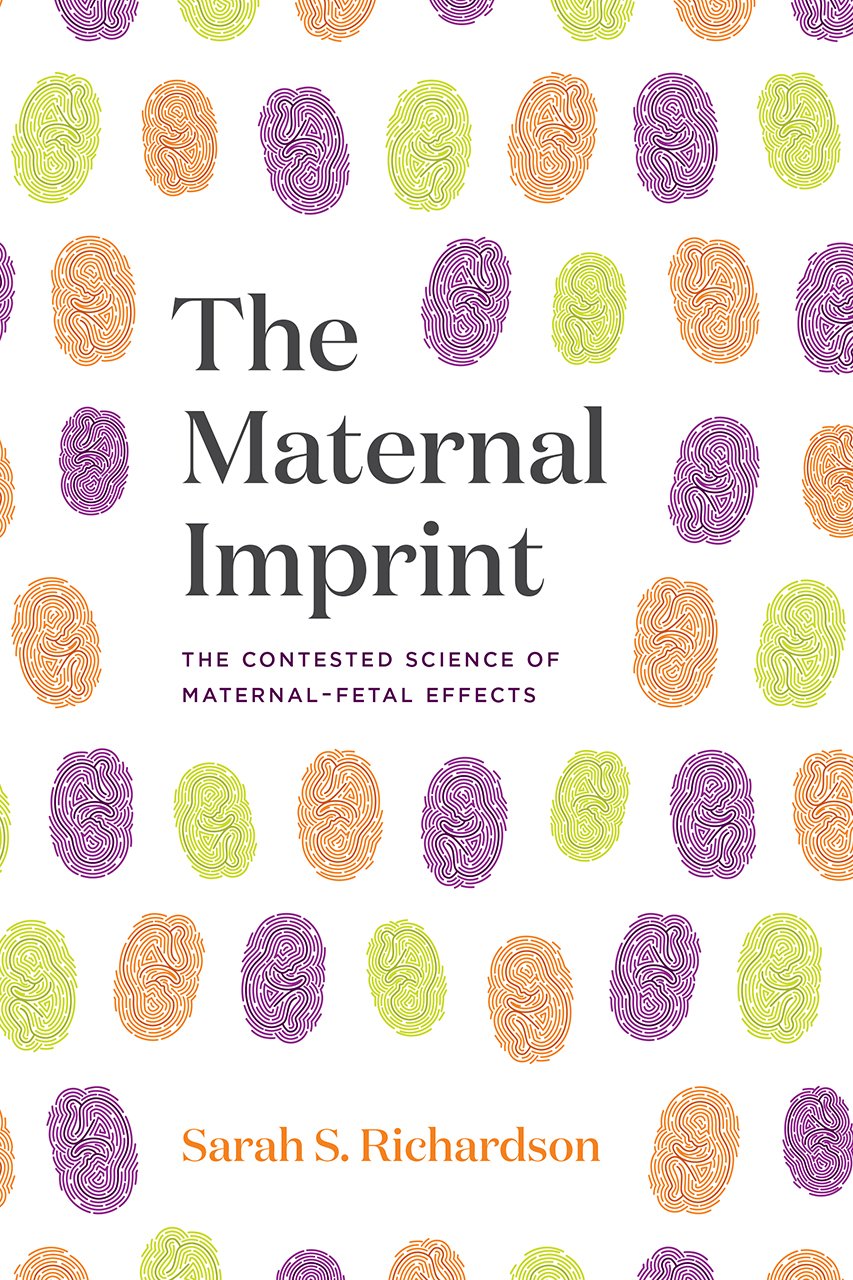New Book from Lab Director Sarah Richardson: The Maternal Imprint
By Kai De Leon DeJesus
GenderSci Lab director Professor Sarah Richardson has a new book out, The Maternal Imprint: The Contested Science of Maternal-Fetal Effects (Chicago, 2021). Maternal-fetal effects are defined by geneticists Jason Wolf and Michael Wade as the “causal influence of the maternal genotype or phenotype on the offspring phenotype … generally through the maternally provided ‘environment.’” A thorough history of scientific ideas about the long reach of the womb in which you are gestated, Richardson’s book breaks new ground, challenging the reader to rethink much of what they have so often been told about the relationship between a pregnant person and their fetus. It especially takes aim at the explosion of epigenetics research and fetal origins science today and these fields’ implications for maternal well-being and reproductive autonomy.
In a world where important reproductive autonomy victories like Roe v. Wade are constantly under attack, and as part of the GenderSci Lab’s mission to counter the bias and hype in the sciences of sex, gender, sexuality, and reproduction, this book is a vital read. Between its account of the long history of maternal-fetal effects research and its analysis of modern-day overreach in epigenetics and fetal origins science, the book has so much to teach us about everything from the role of media reporting, scientific bias, racism, and social panic in the so-called “crack baby” epidemic of the 1980s to the long legacies of eugenic policies. The Maternal Imprint powerfully ties together many different lines of research, both historical and contemporary. Ultimately, the book argues for public policy and research priorities centered on improving the material conditions of mothers, rather than a research focus on the “long-term implications of small variations among apparently healthy, average births” (9). As she explains:
In the end, we must keep in sight the bigger picture of the largest, most pressing priorities for both mother and offspring health, for which the evidence is already in: equitable distribution of prenatal, birth and postnatal care; access to nutrition, essential medicines, and education; stable income; housing; and freedom from violence. (217)
If you’d like to get a copy of this groundbreaking work, you can find it here!
Selected reviews and interviews with the author:
Reviewed in Science by Abril Saldaña-Tejeda
Interview with Professor Richardson at the Mercantile Library
HOW TO CITE THIS BLOG POST
DeJesus, Kai De Leon. “New Book from Lab Director Sarah Richardson: The Maternal Imprint.” GenderSci Blog, December 15, 2021. genderscilab.org/blog/new-book-the-maternal-imprint
STATEMENT OF INTELLECTUAL LABOR:
Kai DeJesus wrote the blog post. Kelsey Ichikawa and Sarah Richardson provided edits and feedback.

